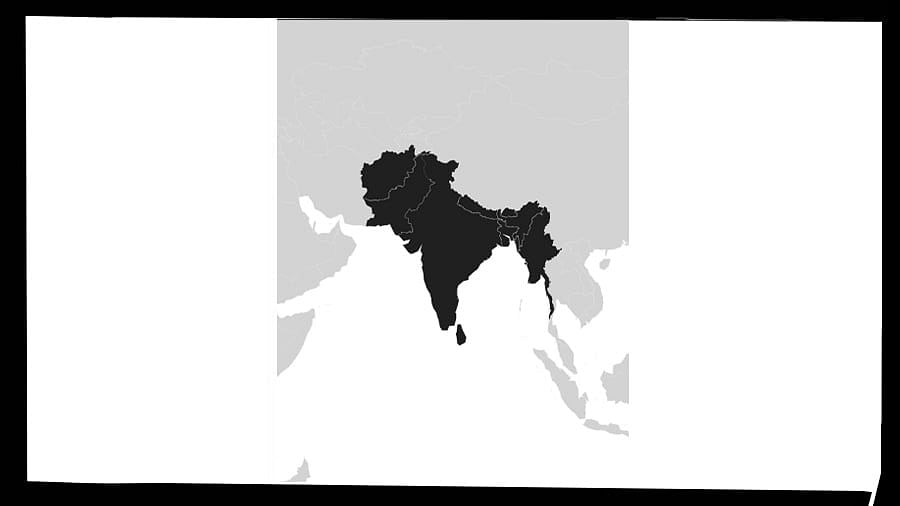
Credit: DH Illustration
The political upheaval in Bangladesh was waiting to happen. Growing economic hardship, the increasingly authoritarian rule of Sheikh Hasina, the shrinking space for dissent, and the ever-present religious extremists, had resulted in a volatile mix. If Sheikh Hasina’s precipitate downfall took us by surprise, it could either be due to our inability to read the tea leaves or the wish to see a friendly leader survive against growing odds.
The denouement of the ongoing power churn in Bangladesh is far from clear. The disparate coalition of forces that caused Sheikh Hasina’s downfall may not hold together. We will have to wait for the dust to settle before trying to pick up the pieces.
Sheikh Hasina has reportedly alleged an American hand in her ouster. Others have spoken of a China-Pakistan nexus. The complete truth about an external conspiracy, if there was one, may never be known. But countries ill-disposed towards us, particularly Pakistan, will certainly try to take advantage of the situation to our detriment.
The recent events call for an introspection concerning the desirability of putting all our eggs in the basket of a friendly foreign leader. The government’s statement to Parliament refers to our having counselled restraint and dialogue to various political forces we were in touch with.
However, what will stick in the public memory in Bangladesh, at least for now, is our description of the growing unrest as an internal matter of that country. A reappraisal of our information systems to assess such developing situations is necessary, too.
It is also an opportunity to take stock of the situation and our policy in all of South Asia.
Home to roughly a quarter of humanity, South Asia has the second highest number of the world’s extreme poor after Sub-Saharan Africa. Our strategic discourse has remained fixated on the dangers posed by terrorism and the growing linkages of outside powers, notably China, in this region.
A much greater threat, however, is the growing instability in our neighbouring countries. It is the result of sharp political polarisation and autocratic rule, shortsighted policies, economic mismanagement, burgeoning debt burdens, religious extremism, and youth bulge with highly inadequate employment opportunities, etc. This explosive mix threatens to rip apart governance structures as evidenced by the events in Sri Lanka in 2022, the anti-army unrest in Pakistan last year and following the rigged election earlier this year, and the public agitation leading to Sheikh Hasina’s ouster.
We cannot remain untouched by meltdowns in our neighbourhood. Large numbers of people fleeing unrest and deprivation towards us, facilitated by porous land borders and flat terrain, remains one of the ever-present dangers in such situations. The recent apprehension of a large influx from Bangladesh is a case in point. The simple truth is that we cannot remain an island of stability in a sea of turmoil.
Independent India inherited the centuries-old tradition of rulers of India dominating the geostrategic space in South Asia, but was not strong enough to exclude other powers from the region. India took to SAARC reluctantly, after initially regarding a pan-South Asia agenda as an attempt by its smaller neighbours to gang up against it.
However, with growing strength and confidence, we came to present the vision of India leveraging its larger economy and potential to lead South Asia toward greater cohesiveness. Thus, Prime Minister I K Gujral emphasised harmonious relations with our neighbours and asymmetric contribution by India to their growth; Prime Minister Atal Behari Vajpayee advocated creation of a solid structure of cooperation; Prime Minister Manmohan Singh presented a vision of South Asia where, with the cooperation of all our neighbours, we move from poverty to prosperity, ignorance to knowledge, and insecurity to lasting peace.
Prime Minister Narendra Modi adopted the “Neighbourhood First” policy. SAARC leaders were present at his first swearing-in as Prime Minister. External Affairs Minister Sushma Swaraj spoke in December 2014 of “positive asymmetry in favour of our neighbours” to allow all to benefit from our economy and market.
The above approach recognised that South Asia is our home and how we manage it impacts our ability to realise our legitimate global ambitions. It was not a ‘South Asia trap’ for us, but an effort worth making to add to our strength for our due role on the global stage.
Pakistan vetoed the vision of a cohesive South Asia by repeatedly blocking progress in SAARC. Instead of continuing to isolate Pakistan within SAARC, we yielded to its veto, gave up on SAARC and shifted our focus
to BIMSTEC, which too is not without its own problems. The South Asian agenda got reduced, at least in the public perception, to countering Pakistan’s terror.
To be sure, we have continued to assist our neighbours bilaterally. However, the absence of a pan-South Asia vision in our policy conveys to our neighbours the impression of an India unwilling or incapable of leading the region towards a brighter future, and of being excessively dependent
on its superior power to manage it.
Therefore, notwithstanding the difficulties in building a cohesive South Asia, we should at the very least not stop voicing that vision, as we have done in recent years. Taking it forward should remain one of the priorities of our diplomacy.
Yet another grave threat to us is posed by religious extremism and its exclusionary ideology in the Af-Pak region and Bangladesh. India has stood in striking contrast to these forces.
It is the repository of nearly all linguistic, religious and cultural traditions of this region and an epitome of South Asian diversity, which we have managed well in a vibrant democratic and inclusive political system. While force is essential to counter violent acts of extremists against us, our inclusive tradition remains the strongest antidote against their divisive agenda.
Our South Asia policy is overdue for a review.
(The writer is a former diplomat)